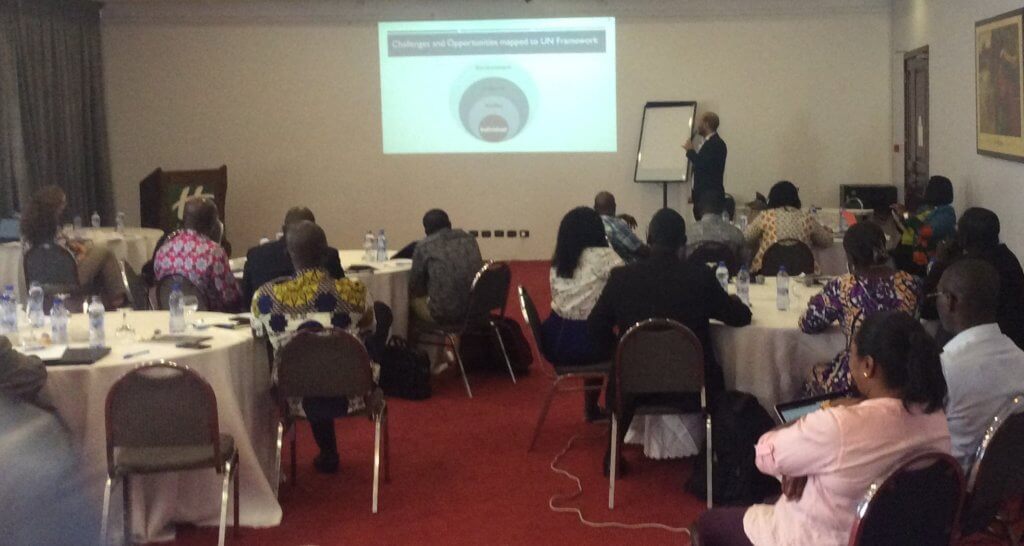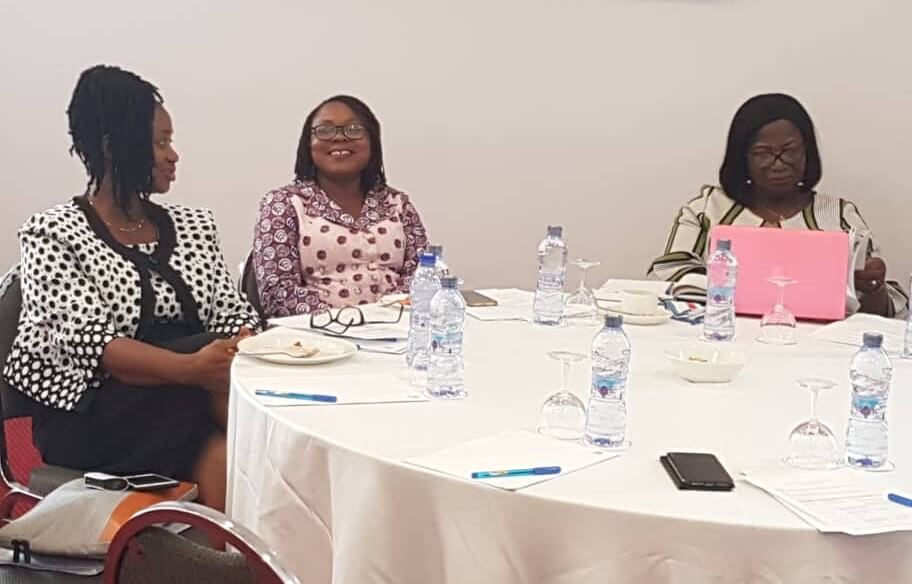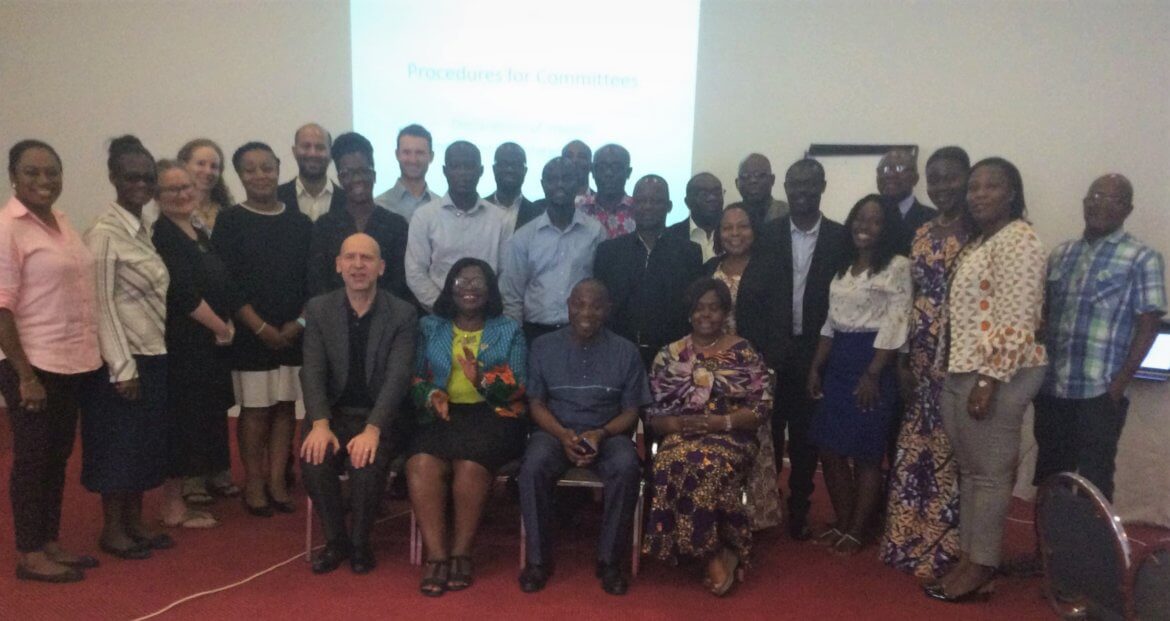As we reflect on Universal Health Coverage day (UHC) from the end of last year, it seems that 2019 was an important year in Ghana’s journey towards achieving the target of UHC by 2030. According to the WHO, UHC is achieved when all people and communities can have access to the promotive, preventive, curative, rehabilitative, and palliative health services they need, of sufficient quality, and without suffering financial hardships[1].
Ghana has been a pioneer in embracing UHC initiatives. Starting with the “Health for All” movement in the 1970s, going through the early 1980s when the Ghana Primary Healthcare Strategy was adopted, and the 1990s when the district health systems were established. In the early 2000s, these efforts were consolidated and Ghana became the first sub-Saharan African country to establish a National Health Insurance Scheme (NHIS), following adoption of the NHIS act in August 2003, amended in 2012[2].
Sustainable UHC requires developing frameworks for priority setting and making difficult choices. In October 2019, Ghana showed leadership in this area when the Minister of Health announced plans to formally introduce Health Technology Assessment (HTA) to support UHC in Ghana (See our iDSI blog concerning this here)[3]. Taking forward this initiative are two recently established committees: one to provide strategic and political oversight (the Steering committee), and another focused on the technical aspects of producing and interpreting HTA relevant evidence (the Technical committee, also referred to as the Technical Working Group (TWG)). Ghanaian policy makers see HTA as critical to enhancing healthcare efficiency and maximising the value of every Cedi spent.
Our team has just returned from a week-long visit to Ghana, where we attended the ministry’s Development partners engagement meeting and helped deliver an HTA Policy Seminar to facilitate timely discussions among national and international stakeholders involved, specifically on the practical implications of this initiative to institutionalise HTA in Ghana. During these proceedings, we asked some key questions, such as: “what is Ghana’s vision for HTA institutionalisation?”, “What is the national strategy to deliver this vision?” and “How can local and international stakeholders get behind a country-led agenda and collaborate effectively to successfully realise this vision?”

The meetings highlighted the importance of tapping into existing capacities in the country, and the need to devise a bespoke multi-levelled capacity building plan for individuals, institutions, and the wider environment. We have identified an indisputable need for strengthening cooperation and communication among the various stakeholders working in the HTA space in Ghana. These include, within Ghana, the Ministry of Health, Ministry of Finance, National Health Insurance Authority (NHIA), Ghana Health Service (GHS), academic institutions, and civil society. To support key country stakeholders on their HTA journey, there is also a growing interest among international development partners in the importance of developing country-owned priority setting mecahnaisms, supported by cost-effectiveness evidence.
In this context, coordination between international partners in Ghana will be critical, and ongoing initiatives to bring together multilateral bodies in support of development are welcome. These include the “Global Action Plan for Healthy Lives and Well-being for All” with Gavi, the Global Financing Facility (GFF), the Global Fund, World Bank and WHO all actively involved in an an accelerator on sustainable financing that recognises the need for strengthening “country led, demand driven and evidence-informed” systems, to increase the efficiency and effectiveness of health spending.
It is also worth noting that Ghana was among nine countries joining the GFF in 2019. The GFF partnership seeks to support countries build investment cases for prioritising reforms relating to reproductive, maternal, newborn, child and adolescent health and nutrition. An important part of this support concerns strengthening country-led platforms for priority setting, mobilising evidence and input from key stakeholders.
Further both the Joint Learning Network and the SDG Accelerator funded by USAID and BMGF (Results for Development), are active in Ghana and their presence offers opportunities for engagement and investment in South-South learning and also in institutional strengthening.
These international initiatives also recognise the importance of strengthening informational and payment system infrastructures to support priority setting and wider health system strengthening. In that context, it is worth noting the work of PharmAccess in supporting NHIA develop systems that generate accurate real time data for analysis and access to financing.
The iDSI network has supported Ghanaian collaborators since 2009, and we are currently engaging with country partners to help realise a fully formalised HTA function following the announcement in October 2019. (More details on our work in Ghana available on our page.) A key measure of success for HTA institutionalisation in Ghana relates to developing effective partnerships and facilitating cooperation between the stakeholder groups. Such partnership working is an important feature of the iDSI network’s theory of Change[4] (see our recent publication about building relationships that focus on people, policy, and process for implementing HTA)[5].

In light of these recent developments, Ghana can be regarded as a regional leader in the area of priority setting for UHC. Such leadership can align with and feed into, ECOWAS regional plans for macro-economic policy convergence[6]. Ghana’s successes in the past and its ambitions in the future have the potential to positively influence other countries on the continent, offering a confident message of what can be achieved as we work towards reaching UHC.
Interested to find out more about national HTA agenda and UHC progress, listen to our podcast with Martha Gyansa-Lutterodt here.
Do you have a query on our iDSI work in Ghana?
Visit our iDSI Ghana country page, here. Or get in contact
with author of this blog at m.gad@imperial.ac.uk
.
[1] World Health Organisation (WHO), definition of UHC, available at: https://www.who.int/health_financing/universal_coverage_definition/en/
[2] Grace Antwi-Atsu, Universal Health Coverage in Ghana, can we really make a progress? Available at: https://www.sightsavers.org/blogs/2019/08/universal-health-coverage-ghana-how-can-we-really-make-progress/
[3] Ghana’s Minister of Health launches the National HTA steering committee and calls for HTA institutionalisation in the country, available at: https://idsihealth.org/blog/ghanas-minister-of-health-launches-the-national-hta-steering-committee-and-calls-for-hta-institutionalisation-in-the-country/
[4] International Decision Support initiative (iDSI) Theory of Change, available at: https://f1000research.com/documents/7-1659
[5] Implementing health technology assessment in Ghana to support universal health coverage: building relationships that focus on people, policy, and process, available at: https://www.cambridge.org/core/journals/international-journal-of-technology-assessment-in-health-care/article/implementing-health-technology-assessment-in-ghana-to-support-universal-health-coverage-building-relationships-that-focus-on-people-policy-and-process/1C9B9F3ABB79CD782DD06D1FC4225411
[6] What’s Africa’s Eco: What difference would a single currency make? Available at: https://www.bbc.co.uk/news/world-africa-48882030
